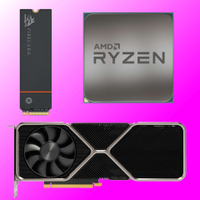Nvidia RTX 5060 Ti and RTX 5060 announced, starting from $299: 'We can work with our partners to get these out at reasonable prices, which we are doing'
Here's hoping Nvidia's new entry-level GPUs can stick to MSRP.
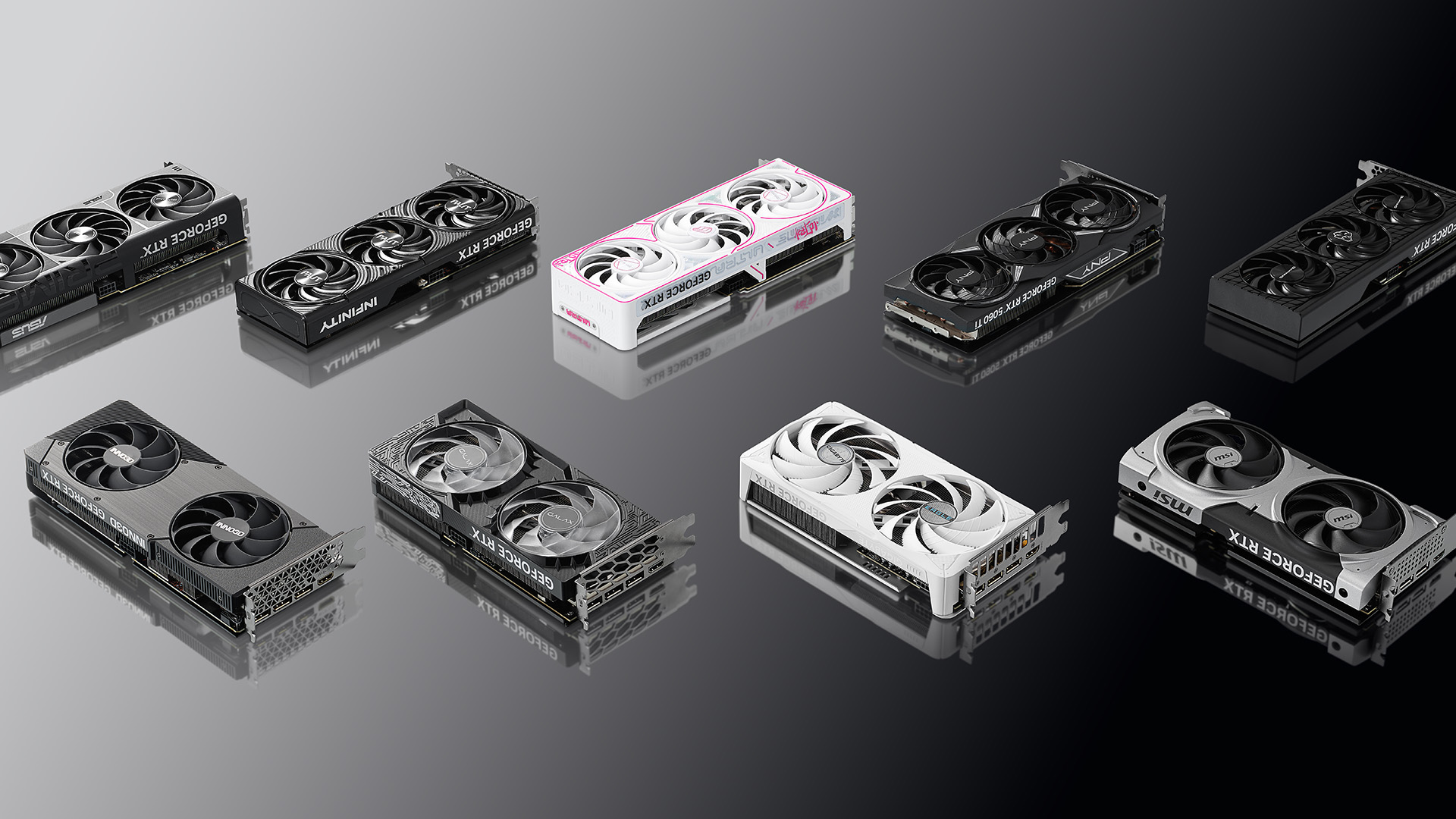
If you've been staring po-faced at overpriced graphics cards on the internet all year and now wondering when you might be able to upgrade your ageing GTX card, here's your first opportunity of the year. Nvidia has just announced the RTX 5060 Ti and RTX 5060, starting from $299.
Emphasis on "starting" there, for a few reasons. The RTX 5060 will launch with an MSRP at $299. Then there's the RTX 5060 Ti with 8 GB of VRAM at $379 (£349), and above that the RTX 5060 Ti with 16 GB of VRAM at $429(£399).
If you're not au fait with the original RTX 40-series pricing, the RTX 4060 was $299 at launch, the RTX 4060 Ti 8 GB was $399, and the RTX 4060 Ti 16 GB was pointless. I mean, $499. So, generally, the new RTX 50-series looks a better deal that the last lot.
Though there is another dynamic at play, and that's whether we'll see any of the above pricing actually come to fruition on launch day. Or thereafter. The positive spin is that, in the UK anyways, there are some RTX 50-series cards already available at MSRP, or in one rare case, less than MSRP. The negative spin is this is not the case in the US right now.
Right now, US tariffs exclude computer parts and semiconductors, but on that question specifically, Nvidia said: "'These [prices] are not going to be inclusive of tariffs, there's not much we can do about that."
But what it can do is talk to its graphics card partners about the prices they're charging. "We can work with our partners to get these out at reasonable prices, which we are doing," says Nvidia. Though how much impact that will have is going to be something that will only come to light when the cards are launched.
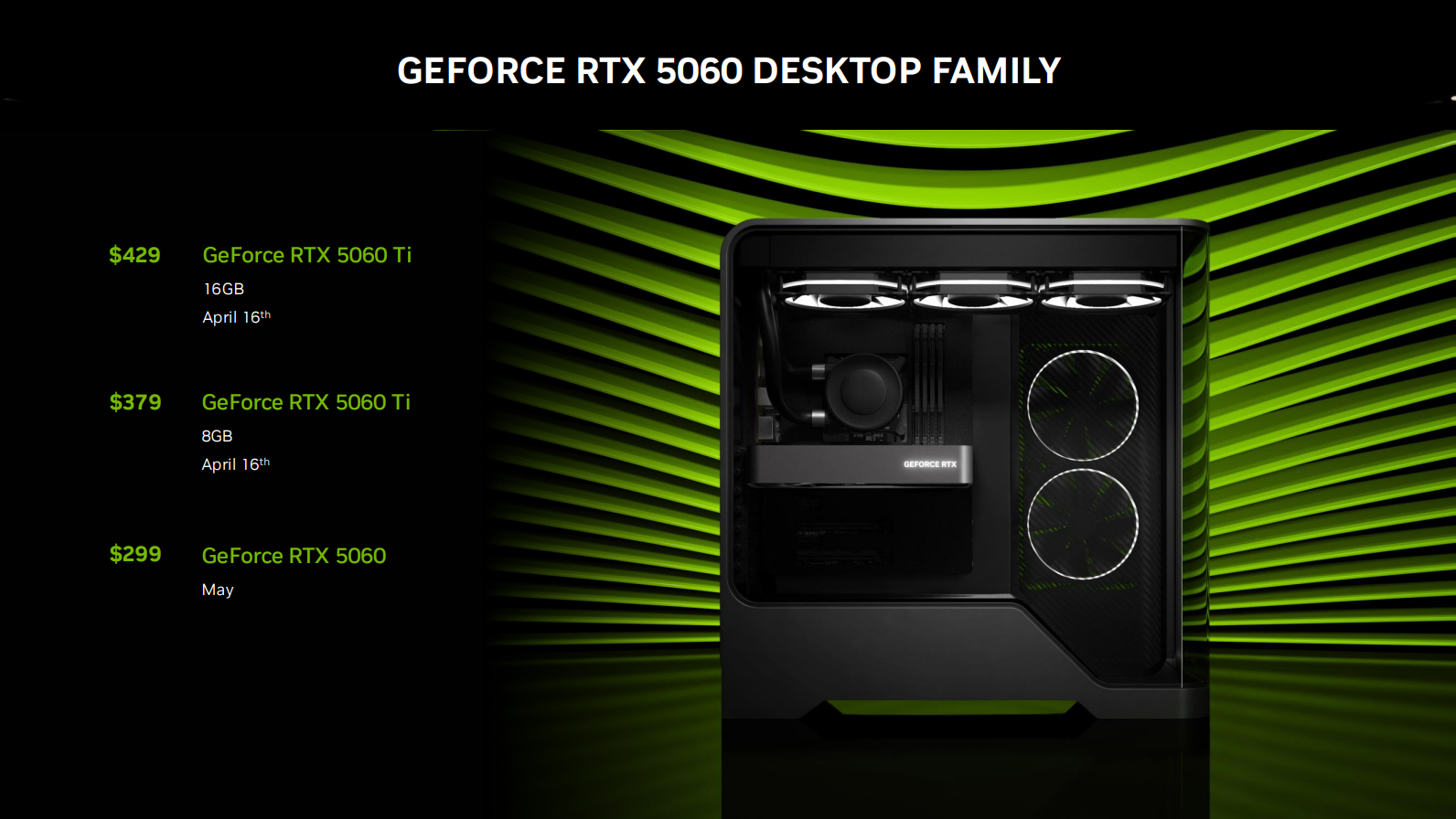
The RTX 5060 Ti, in both 16 GB and 8 GB, is set to launch April 16 (yep, tomorrow). The RTX 5060 won't show up until next month. There's no exact date for that launch yet, which I presume is intended to offer Nvidia some leeway in case AMD tries to spoil the party with its entry-level RX 9060-series cards, which are on their way sometime before June is up.
The biggest gaming news, reviews and hardware deals
Keep up to date with the most important stories and the best deals, as picked by the PC Gamer team.
There's also no Founders Edition for either card, which leaves it up to board partners to decide the prices.
So, here are the specifications. Or should I say specification? Nvidia has only released info on the RTX 5060 Ti, which lands with us first, but the whole entry-level line-up uses the same GPU, codename GB206, powered by the Blackwell RTX architecture.
Compared to the RTX 4060 Ti, there's been a small increase across the GPU on the RTX 5060 Ti. Two more Streaming Multiprocessors (SMs) amount to a few more CUDA cores at 4608, two more RT cores, and eight more Tensor cores. Otherwise, the largest improvements come from the improvements baked into the Blackwell architecture and the faster GDDR7 memory on-board.
That memory will make a difference. At 28 Gbps, this GDDR7 is a lot faster than the GDDR6 found on entry-level RTX 40-series cards. As such, the memory bandwidth on the RTX 5060 Ti is 55% higher than the RTX 4060 Ti at 448 GB/s.
There's also your choice of 16 GB or 8 GB of it, as I previously mentioned. Nvidia says it made the decision to stick with 8 GB on two of three of the cards to "optimised for price and performance".
"Could you put more memory on this? Sure, but what does it get you?" says Nvidia GeForce product manager Justin Walker of the decision.
| Header Cell - Column 0 | RTX 5060 Ti | RTX 5060 (*unconfirmed) |
|---|---|---|
GPU | GB206 | GB206 |
TFLOPs | 24 | 19 |
CUDA cores | 4608 | *3840 |
SMs | 36 | *30 |
RT cores (4th Gen) | 36 | *30 |
Tensor cores (5th Gen) | 144 | *120 |
Memory | 16 GB / 8 GB GDDR7 | 8 GB GDDR7 |
Memory bus | 128-bit | 128-bit |
Memory speed | 28 Gbps | *28 Gbps |
Price | $429 (16 GB) / $379 (8 GB) | $299 |
Release date | April 16 | May |
Since we've got the rough TFLOPs for the RTX 5060 and the rest of the info for the RTX 5060 Ti, it's not too difficult to work out where the RTX 5060 lies either. I've thrown those figures in, too, though note they're not officially official. We do have some performance figures to go off for both cards at least.
As you might expect, Nvidia rolled out Multi Frame Generation, its latest frame increasing feature, for most of its own figures. We'll have more to share of our own soon, but in the meantime, here's what Nvidia says.
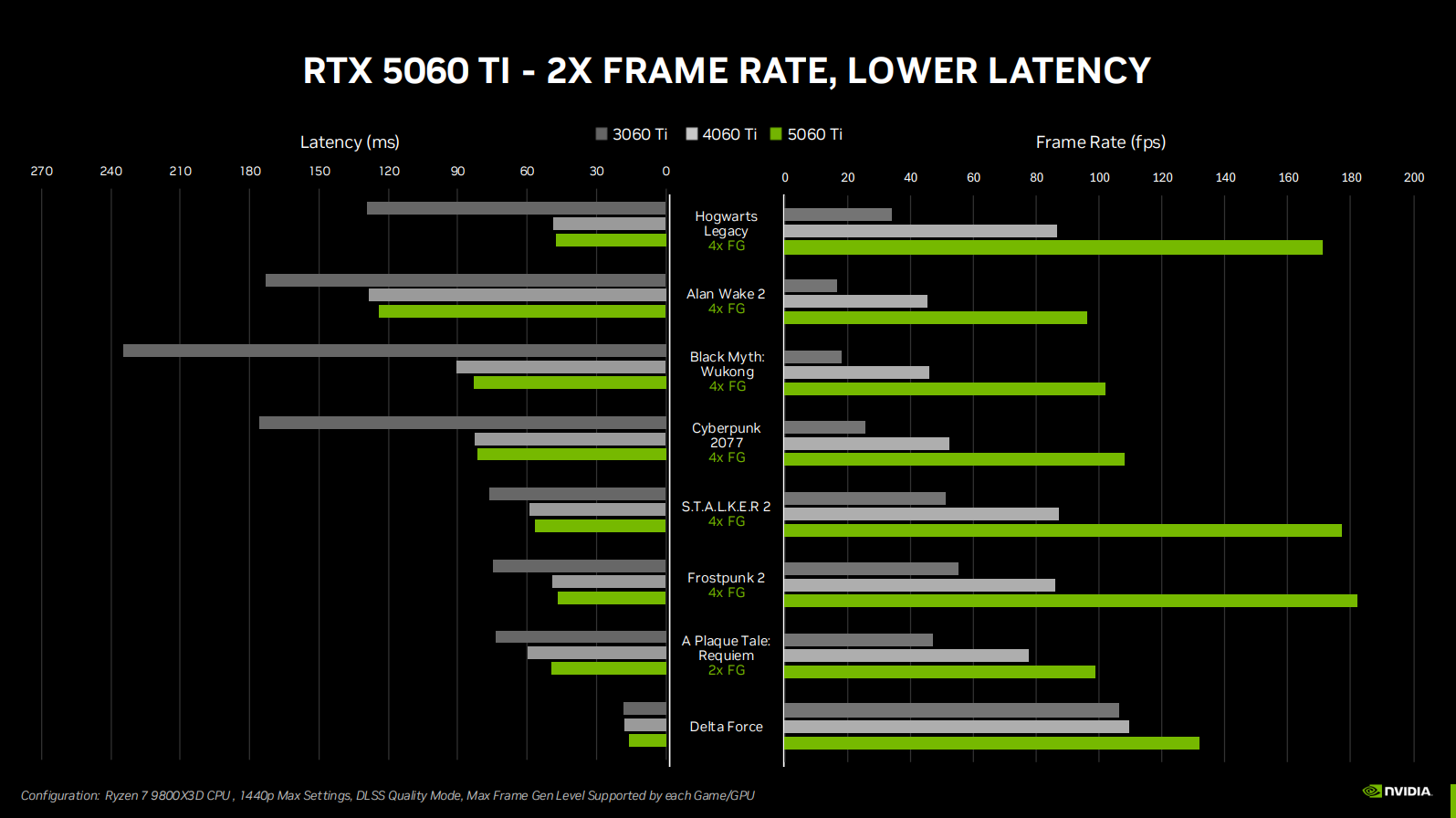
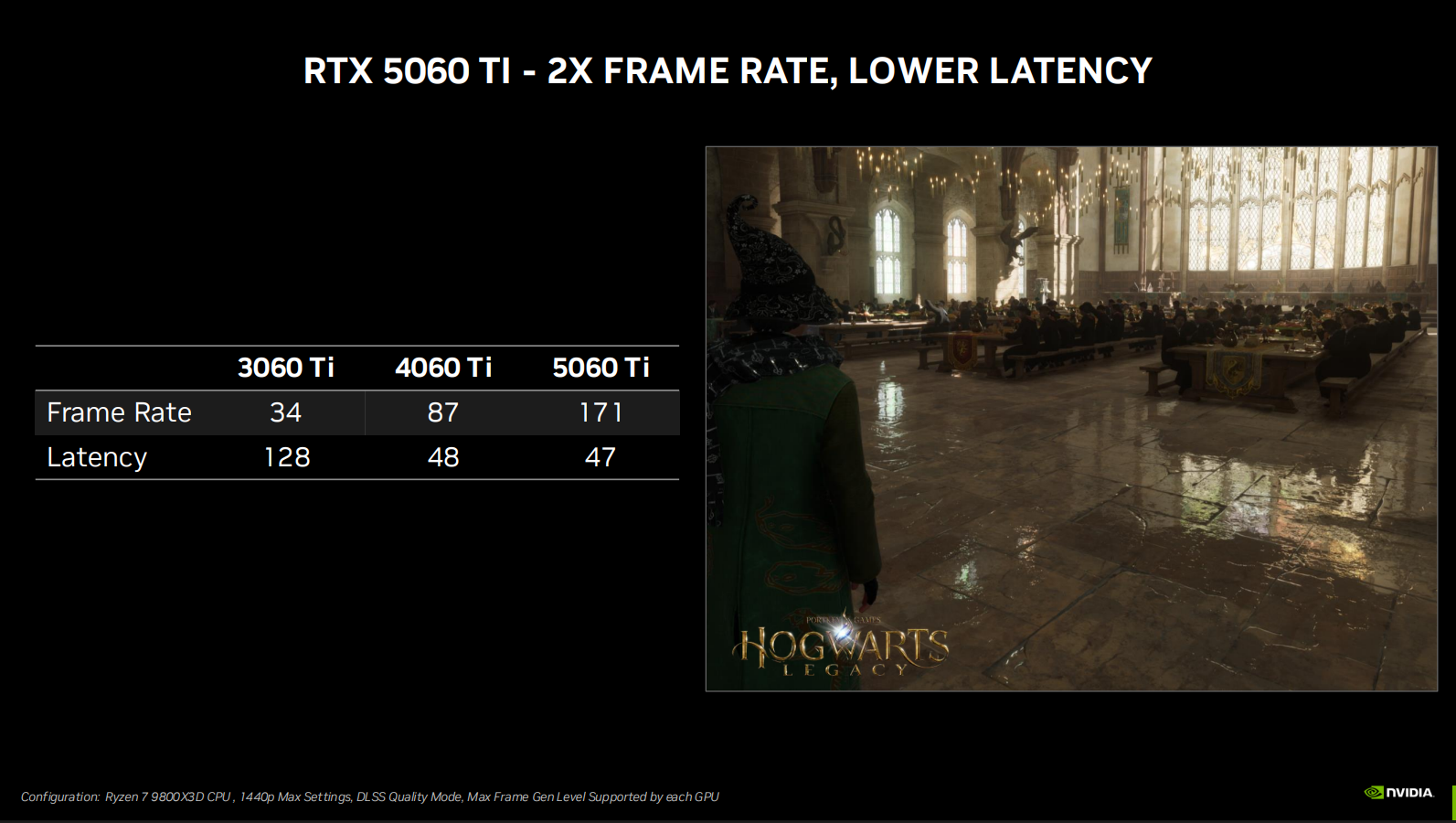
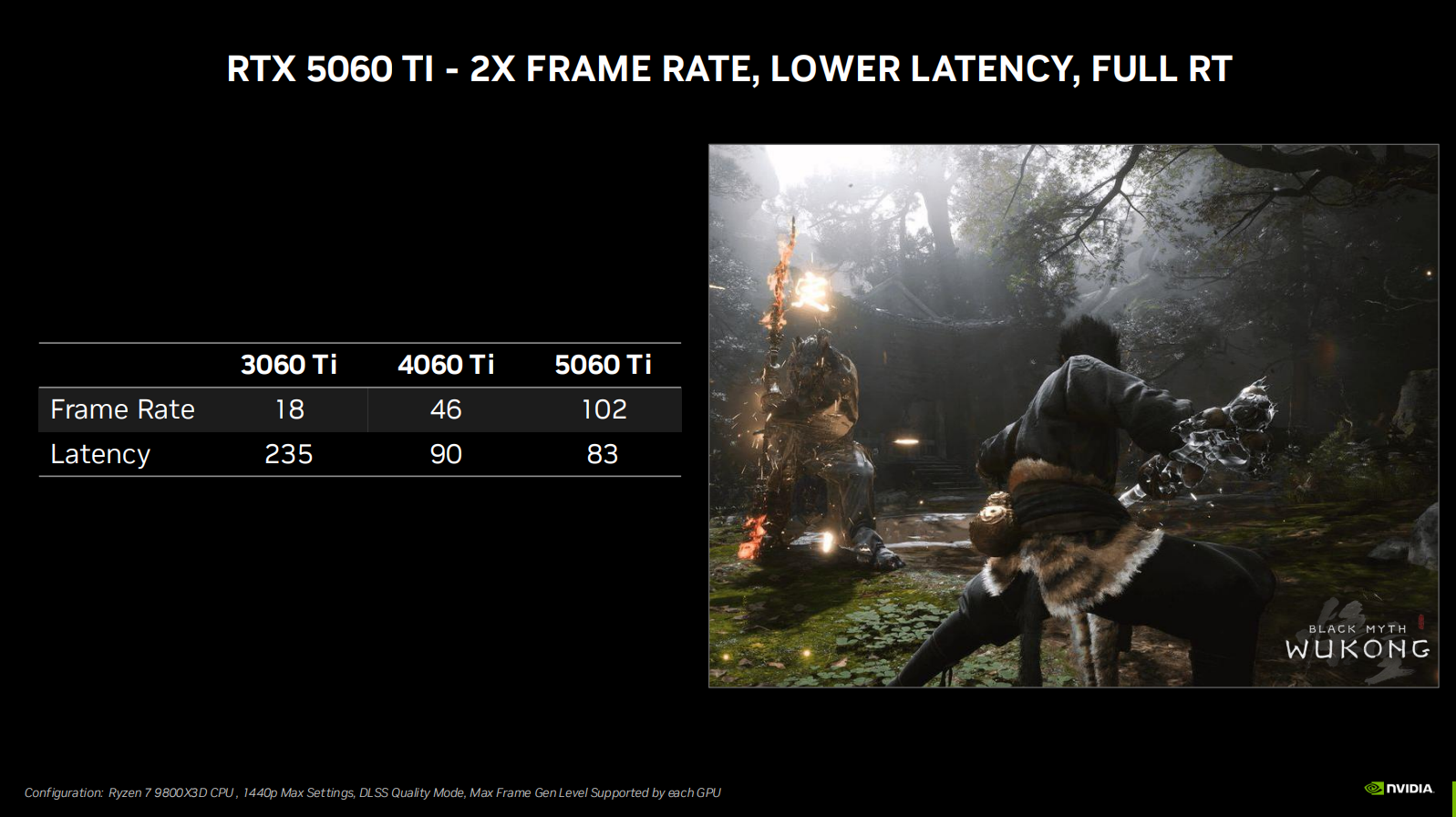
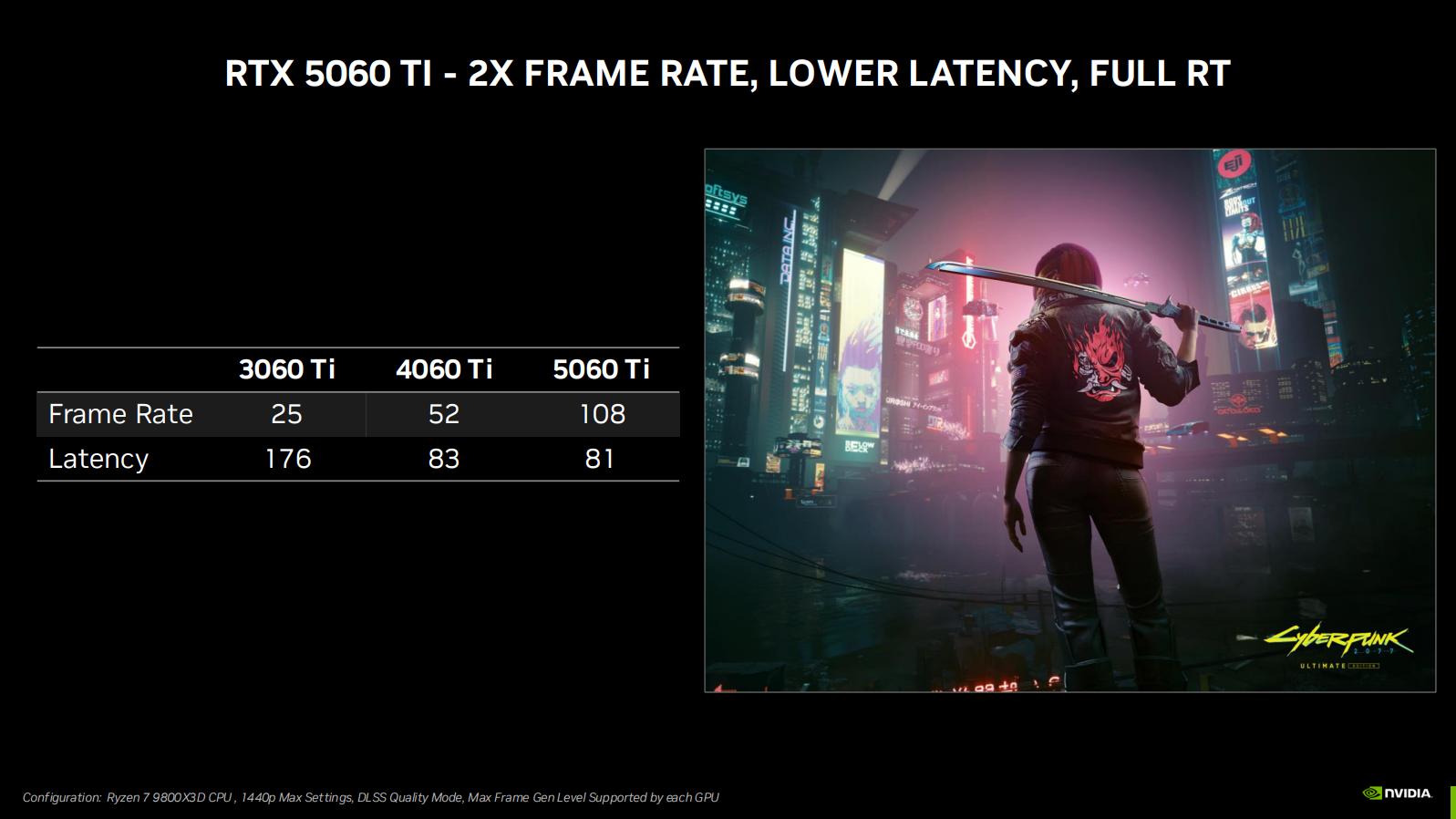
I was told we can expect around a 20% improvement in regular rasterised gameplay from the RTX 5060 Ti and around 20 to 25% with the RTX 5060. Check the slides for game-by-game figures with Multi Frame Generation enabled, largely in 4X mode (which is an RTX 50-series/DLSS 4 exclusive feature), which obviously bumps those numbers up a lot compared to older cards.
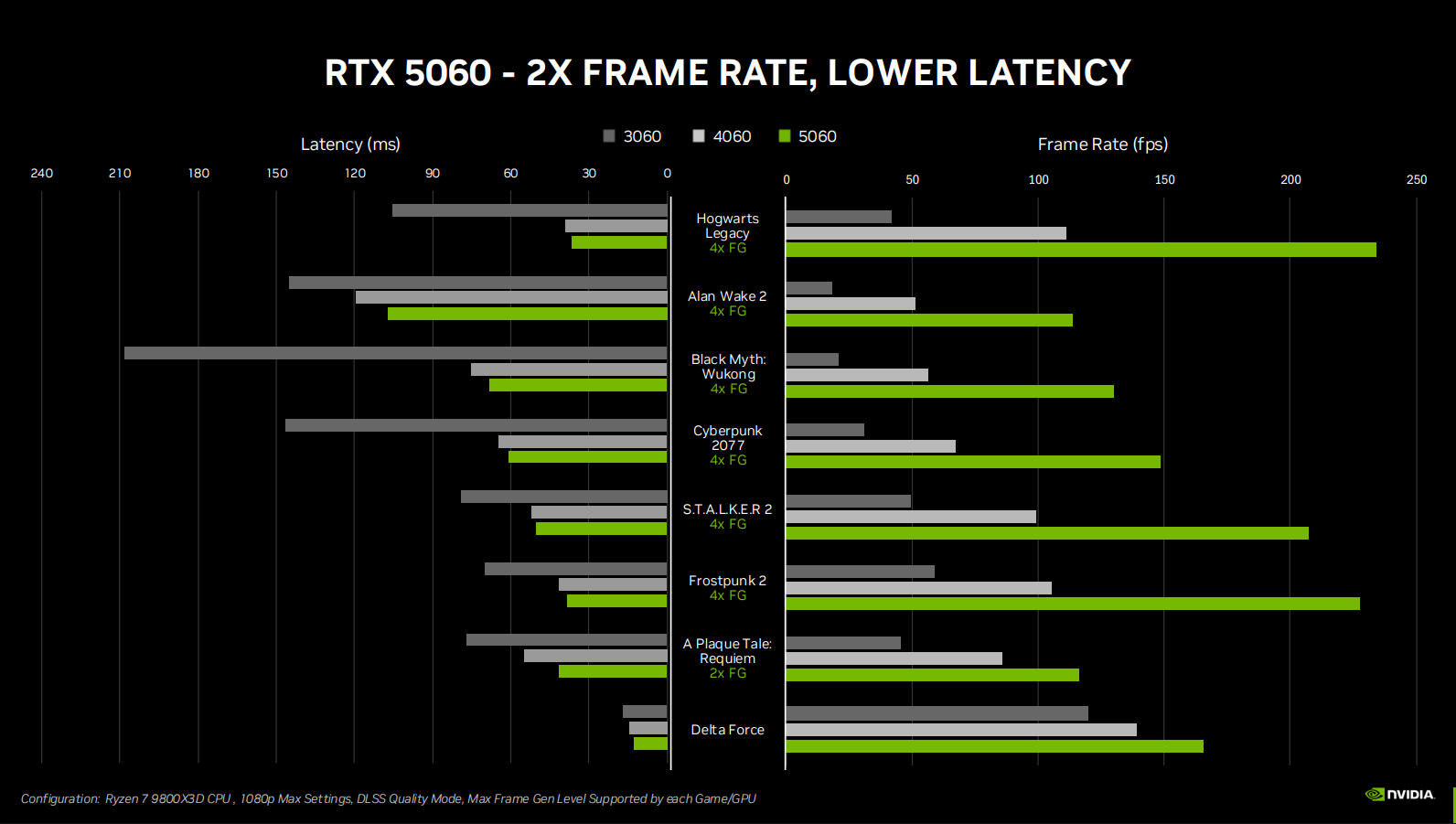
That's what Nvidia says it's targeting with this launch, too: older cards, maybe even of a 'GTX' variety. It's hoping that it might sway some GTX 10-series or 16-series users to buying these cards, which is certainly possible, providing the price is right and you can actually buy one.
If past RTX 50-series launches are anything to go on, it might take a while for these cards to really hit the market at their intended prices. Who can say when that'll happen, but these cards are intended to sell at volume to a large number of people, which presumably means Nvidia will be shipping absolutely tons of them. Stay tuned for our review.
Best CPU for gaming: Top chips from Intel and AMD.
Best gaming motherboard: The right boards.
Best graphics card: Your perfect pixel-pusher awaits.
Best SSD for gaming: Get into the game first.

Jacob earned his first byline writing for his own tech blog. From there, he graduated to professionally breaking things as hardware writer at PCGamesN, and would go on to run the team as hardware editor. He joined PC Gamer's top staff as senior hardware editor before becoming managing editor of the hardware team, and you'll now find him reporting on the latest developments in the technology and gaming industries and testing the newest PC components.
You must confirm your public display name before commenting
Please logout and then login again, you will then be prompted to enter your display name.
